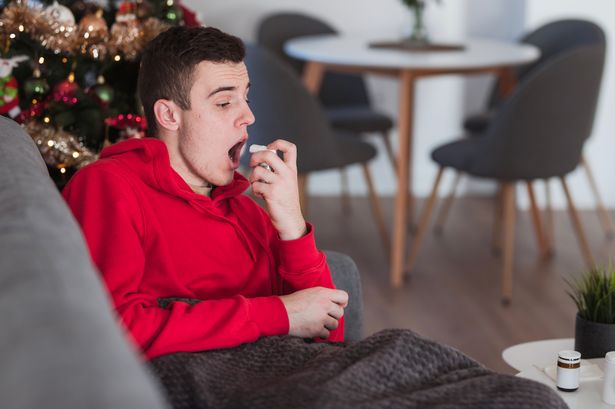Christmas, a time of festive cheer, family gatherings, and indulgent feasts, can unfortunately exacerbate certain health conditions for some individuals. While the holidays bring joy and celebration, the changes in routine, dietary habits, and environmental factors can trigger or worsen symptoms for those managing specific health concerns. Understanding these potential triggers and taking proactive measures can help individuals navigate the holiday season while minimizing discomfort and maintaining their well-being.
One common condition that can be affected by the holiday season is gastroesophageal reflux disease (GERD), commonly known as acid reflux or heartburn. The rich, fatty, and often spicy foods prevalent during Christmas celebrations can relax the lower esophageal sphincter, allowing stomach acid to flow back into the esophagus, causing heartburn, chest pain, and regurgitation. Alcohol consumption, also common during festivities, can further irritate the esophageal lining and worsen GERD symptoms. Overeating, another hallmark of holiday meals, can increase intra-abdominal pressure, contributing to reflux. Furthermore, the stress and anxiety sometimes associated with holiday preparations and family dynamics can exacerbate GERD symptoms. Individuals with GERD should be mindful of their dietary choices during the holidays, opting for smaller, more frequent meals, avoiding trigger foods, and managing stress through relaxation techniques.
Irritable bowel syndrome (IBS), another prevalent digestive disorder, can also be significantly impacted by the holiday season. The changes in dietary habits, including increased consumption of rich, fatty foods, processed foods, and artificial sweeteners, can disrupt the delicate balance of the gut microbiome and trigger IBS symptoms such as abdominal pain, bloating, gas, diarrhea, or constipation. The stress and altered sleep patterns associated with the holidays can further exacerbate these symptoms. Travel disruptions and changes in routine can also contribute to IBS flare-ups. Individuals with IBS can minimize their risk of experiencing symptoms by adhering to their usual dietary guidelines as much as possible, practicing stress management techniques, and maintaining a regular sleep schedule.
The festive atmosphere of Christmas, with its vibrant decorations, flashing lights, and loud music, can pose challenges for individuals with migraines. These sensory stimuli can trigger or worsen migraine attacks, characterized by severe headaches, nausea, vomiting, and sensitivity to light and sound. Changes in sleep patterns, stress, and even certain holiday foods containing tyramine, such as aged cheese and cured meats, can also act as migraine triggers. Furthermore, alcohol consumption, especially red wine, is a known migraine trigger. Individuals prone to migraines should be mindful of their environment during holiday gatherings, limiting exposure to strong sensory stimuli, maintaining regular sleep patterns, and avoiding known dietary triggers.
The holidays can also be a challenging time for individuals with seasonal affective disorder (SAD), a type of depression related to changes in seasons. The shorter days and reduced sunlight exposure during winter can disrupt the body’s natural circadian rhythms and neurotransmitter production, leading to symptoms such as fatigue, low mood, loss of interest in activities, and difficulty concentrating. The added pressure and expectations associated with the holidays can further exacerbate these symptoms. Individuals with SAD can benefit from light therapy, maintaining a regular sleep-wake cycle, engaging in regular exercise, and seeking support from mental health professionals.
Managing these conditions during the holidays requires a proactive approach. Individuals should be aware of their specific triggers and take steps to minimize their exposure to them. This may involve making conscious dietary choices, opting for smaller portions, avoiding trigger foods, and limiting alcohol consumption. Maintaining a regular sleep schedule, engaging in stress-reducing activities like yoga or meditation, and prioritizing self-care can also be beneficial. Communicating with family and friends about dietary restrictions and personal needs can create a supportive and understanding environment.
Furthermore, individuals should not hesitate to seek professional medical advice if their symptoms worsen or become unmanageable. Healthcare providers can offer personalized guidance and support, adjusting medications if necessary and recommending strategies to manage symptoms effectively. The holidays should be a time of joy and connection, and by taking proactive steps to manage their health conditions, individuals can fully participate in the festivities while prioritizing their well-being. Remembering that self-care is essential, especially during this busy time of year, can empower individuals to navigate the holidays with greater ease and comfort.














